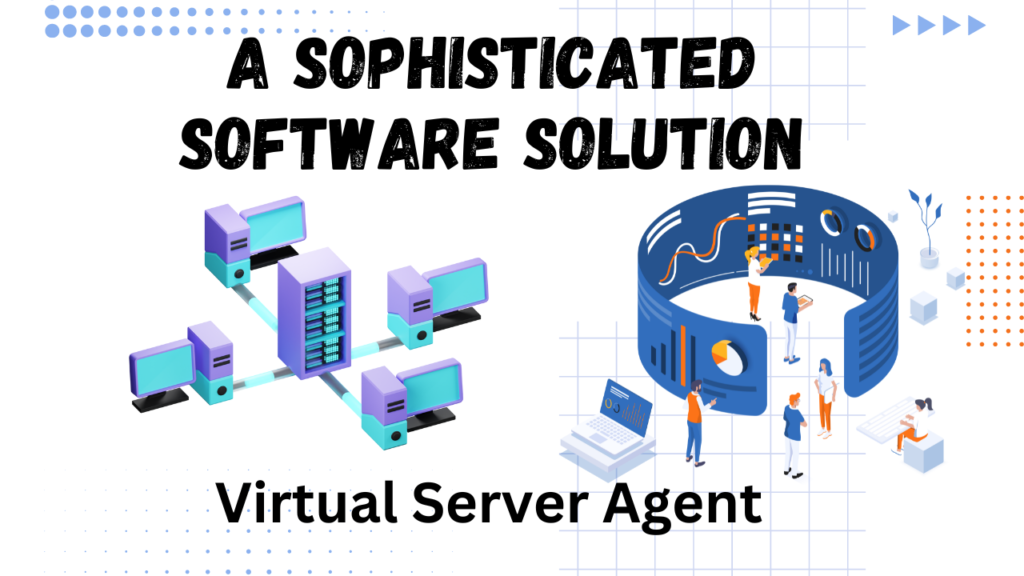Introduction
In today’s tech-driven landscape, businesses increasingly leverage virtualized environments to amplify operational efficiency and flexibility. However, navigating data management within these dynamic infrastructures presents formidable challenges. Enter Virtual Server Agent (VSA) – a cutting-edge solution meticulously crafted to streamline data management, bolster protection, and optimize resource utilization within virtualized ecosystems. Join us as we embark on a journey through the intricacies of Virtual Server Agent, uncovering its technological prowess, myriad benefits, and best practices for seamless deployment in the digital age.
Understanding Virtual Server Agent (VSA)
- What is Virtual Server Agent?
Virtual Server Agent, commonly referred to as VSA, is a sophisticated software solution engineered to bridge the gap between virtualization platforms and backup applications. It operates as a central component within virtualized environments, facilitating seamless data backup, recovery, and migration processes across diverse virtualization platforms such as VMware vSphere and Microsoft Hyper-V.
- The Evolution of Data Management
In the era of traditional data centers, managing data involved deploying agents on individual machines, leading to resource overhead and complexity. VSA revolutionizes this approach by offering agentless backup solutions, eliminating the need for installing agents on each virtual machine (VM). This streamlined approach not only reduces administrative burden but also ensures consistent and reliable backups across the entire virtualized environment.
Key Features of Virtual Server Agent
- Agentless Backup
VSA’s agentless backup capability simplifies data protection by eliminating the need for agents on individual VMs. This not only reduces deployment complexity but also ensures consistent backups across the virtualized environment, enhancing overall data resiliency.
- Granular Recovery
With VSA, administrators can perform granular recovery of files, folders, and application objects within VMs, minimizing downtime and enhancing data availability. This granular recovery capability is instrumental in meeting stringent recovery objectives and ensuring business continuity.
- Efficient Resource Utilization
VSA optimizes resource utilization through advanced deduplication and compression techniques, minimizing storage requirements and improving backup performance. By eliminating redundant data, organizations can maximize storage efficiency and reduce infrastructure costs.
- Application-Aware Backup
VSA extends support for application-aware backups, ensuring the integrity and consistency of critical applications such as Microsoft Exchange, SQL Server, and Active Directory. This capability is essential for maintaining data consistency and meeting regulatory compliance requirements.
- Automated Workflows
VSA streamlines data management operations through automated workflows, allowing administrators to define policies, schedules, and retention rules. This automation not only enhances operational efficiency but also ensures adherence to data management best practices.
Benefits of Virtual Server Agent
- Cost-Efficiency
By consolidating backup operations onto a single platform, VSA reduces licensing costs associated with deploying multiple backup agents across VMs. Moreover, its efficient resource utilization capabilities translate into lower storage costs and reduced infrastructure overhead.
- Improved Scalability
As businesses scale their virtualized environments, VSA seamlessly scales alongside, accommodating growing data volumes and increasing workload demands without sacrificing performance or reliability. This scalability ensures that organizations can adapt to evolving business requirements with ease.
- Enhanced Data Protection
VSA enhances data protection posture by safeguarding against data loss, corruption, and cyber threats. With its robust backup and recovery features, organizations can confidently meet compliance requirements and mitigate risks associated with data breaches and disasters.
Streamlined Management
VSA simplifies data management complexities by providing centralized control and visibility into backup operations. Administrators can monitor job status, track resource utilization, and generate comprehensive reports, facilitating informed decision-making and proactive management.
Best Practices for Virtual Server Agent Deployment
- Design for Scalability
When deploying VSA, prioritize scalability to accommodate future growth and expansion. Consider factors such as data growth rates, workload requirements, and infrastructure scalability to ensure optimal performance and resource utilization.
- Implement Redundancy
Incorporate redundancy and failover mechanisms into VSA deployments to enhance resilience and mitigate single points of failure. Utilize features such as load balancing, clustering, and replication to ensure high availability and data accessibility.
- Regular Testing and Validation
Establish a regimen of regular testing and validation to verify the effectiveness and reliability of VSA backup and recovery processes. Conduct periodic recovery drills and performance tests to identify and address any potential issues proactively.
- Stay Abreast of Updates
Keep VSA software and associated components up to date by applying patches, updates, and firmware upgrades promptly. Stay informed about new features, enhancements, and security fixes released by the vendor to maximize the value of your investment.
Conclusion
In conclusion, Virtual Server Agent emerges as a pivotal solution for modernizing data management practices within virtualized environments. By harnessing its robust features and adhering to best practices for deployment, organizations can unlock unparalleled efficiency, resilience, and data protection, empowering them to thrive in today’s digital landscape.

